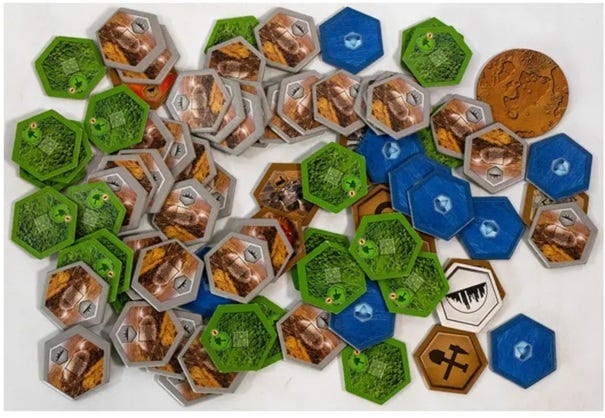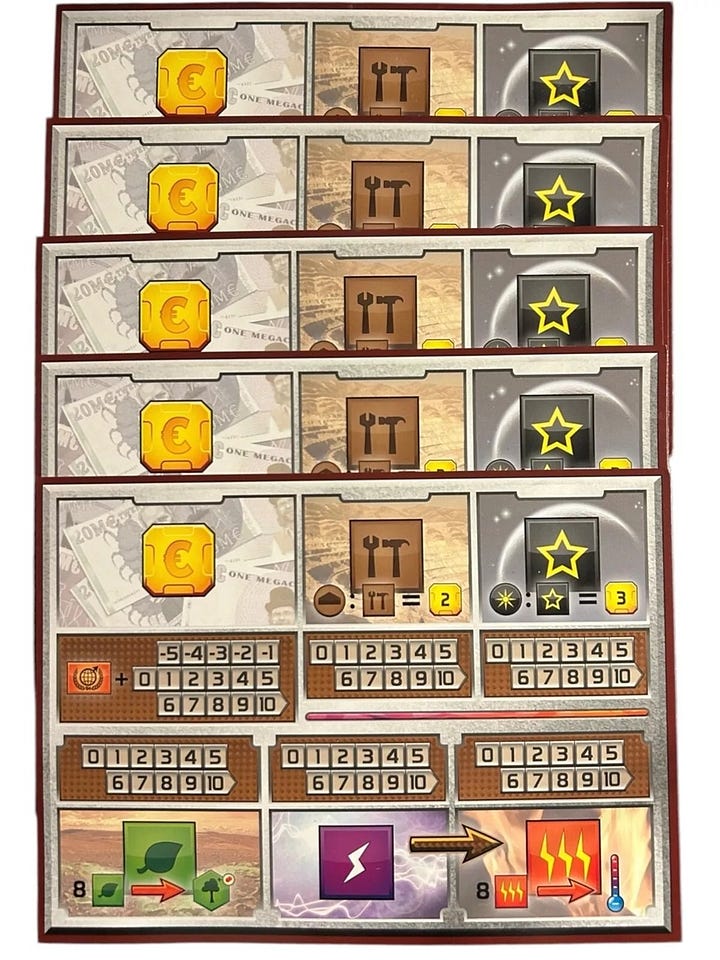Welcome to another edition of The Mueller Report!
Updates
Well, it’s been quite a while since my last newsletter. I hope you enjoyed the mini-series I shared on tariffs last week. I wrote one more piece (Tariff Delay Opportunities and Risks) after that series was scheduled. The Muellers have lots of updates, so I’ll share some now and more next week.
We finished the ski season with a bang. I took the youngest three to Copper Mountain last week. This was a big deal because it is probably about ten times the size of our local ski area. All the time invested teaching the kids to ski is paying off. All three were able to ski with me all day with very little help. They even skied one of my favorite runs from high school.




We are in mud season in Leadville – so not many short-term guests are around. With the warmer weather, we’ve started planting seeds and a couple fruit trees. We are also making plans to get The Abbey ready for summer: repainting and sealing trim, replacing a door and some door locks, installing insulation for some windows, connecting an exterior hose faucet, building a small greenhouse, etc. I’m not sure how much we’ll get to, but it’s fun to brainstorm!
Writing Desk
It’s been a slow couple weeks on the writing front, but I’ve got several pieces slated to come out over the next few weeks. I just drafted and submitted two more short pieces, one about the standard tax deduction in the tax code and another about Harvard and the “hands off our university” mantra.
Over the next three weeks, I plan to complete two short “Explainers” and finish revising the academic piece on philosophical versus technical economics. There may also be another op-ed or two that begs to be written with our contentious political and economic times.
I’m kicking around the idea of modifying my routines slightly to add regular times to work on much bigger writing projects – a book or a series of books. We’ll see.
Bookshelf
A few weeks ago I finished David Bahnsen’s Full-Time: Work and the Meaning of Life. Bahnsen is an unashamed ; which means he embraces the Calvinistic Protestant work ethic. Besides grounding work in Creation (the cultural mandate), Bahnsen argues that our loss of the meaning of work has contributed to a number of ills in society and in the church.
The rise of depression and opioid use, for example, strongly correlates with joblessness. The loss of meaning also contributes to the prolonged adolescence and infantilization of young workers who are not all that interested in working really hard, achieving professional success, and becoming more productive.
Within churches, Bahnsen argues that pastors fail to encourage and care for their businessmen well. Rather than spurring them on to faithful vocational excellence, pastors often preach against workaholism or idolizing one’s job. Or they pressure those who are successful vocationally to spend more time in church ministry. Yet vocational work serves as a critical avenue for men and women to grow in godliness and to exercise a faithful presence in the world. If anything, most people need to be encouraged to take their job and their vocation more seriously, not less.
Bahnsen goes after the phrase “work-life balance” as epitomizing people’s mistaken view of work. People unhelpfully compartmentalize their work, family, social, and church “lives.” But as a friend of mine recently said: “I don’t want work-life balance. I want work-life integration.”
What we do at work should feed into our spiritual and family life. And our family and spiritual life should feed into our work. God wants us to be whole people rather than divided people – which is why the Apostle Paul says in 1 Corinthians, “So, whether you eat or drink, or whatever you do, do all to the glory of God.”
Reflection
The end of Lent approaches quickly. I must say that giving up something that has been a regular part of my life for over five years (diet soda and caffeine) and fasting regularly for this season have made it deeply meaningful and memorable. The season of Lent reminds us of the brokenness of the world, in our relationships, and in ourselves.
God sometimes calls us to give things up, not because the thing itself is sinful or because we are engaging with the thing in a sinful way, but to serve as a visceral and regular memory that He has made us and we are His. Giving up things also deepens our longings for Christ and for the restoration he brings.
I finally have substantive update for you on the Abbey Colloquia front! In my goals for 2025, I mentioned wanting to host more intellectual retreats (colloquia) this year. I currently have two confirmed (May & September), one likely (June), and one potential (July/August) colloquia. So let me talk about the confirmed colloquia.
My good friends, Zach and Betsy Howard, will be leading our first colloquium of the year in May on “C.S. Lewis on Imagination, Poetic Knowledge, and Spiritual Formation.”
You can see the full schedule of readings and activities at our Eventbrite page. Meals and childcare will be provided.
My friend Dr. Mark Hall has agreed to lead a colloquium in September on “The Sacred Rights of Conscience” about Christianity, Religious Liberty, and the American Founding. More details to come.
I’d love to have you join us for either or both of the colloquia if you are interested. You can also pass along this information to others that you think may be interested in participating.
Game Corner
I’ve written about this game before, but Terraforming Mars is really quite extraordinary. We’ve been playing it again recently and have to deliberately choose not to pull it out many days.
The basic game includes the major dynamics of collecting resources, developing projects, and building tiles on Mars. But the Prelude expansion really makes the game interesting. It provides more variation and options from the start of the game and also accelerates play. The different Prelude cards provide you with bonus resources and/or greater production capacity. It also includes more options for the company you operate as with varying special abilities. Although relatively small (probably less than fifty cards total), it really adds a lot to the game.
Those trying to save money could probably create their own Prelude cards with similar effect There is also a Venus expansion, which I have only played a couple times. It adds a few more elements to the game but without changing the basic structure. I’ve read about the Colonies expansion but haven’t played it yet.
One other dimension (i. e. ways to spend more money) is to buy better materials for the game. You can buy 3D printed cities, forests, and other tiles which have a much better aesthetic than flat cardboard pieces. You may also want to get better player trays to track resources and production. The generic flat construction paper boards really don’t cut it.




So play the game first to make sure you like it, but then definitely consider getting the upgrades. I admit, with all the extras this game is pricier than many. But so far it’s been worth the investment, especially since Terraforming Mars will likely be a staple of ours going forward.
May you remember the Lord this weekend with Good Friday and Easter Sunday. And may the celebration of his resurrection bring new joy to your heart!
Thanks for reading The Mueller Report!


